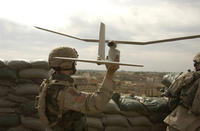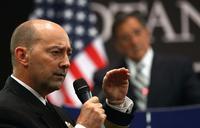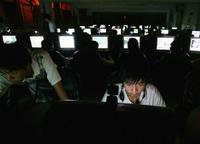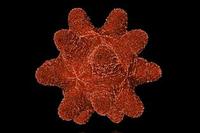-
Most cybersecurity incidents in Europe remain undetected or not reported
In a new report, the EU cyber security agency takes a snapshot of existing and future EU legislation on security measures and incident reporting; the analysis underlines important steps forward, but also identifies gaps in national implementation, as most incidents are not reported
-
-
New book confirms Israel behind killing of Iran nuclear scientists
A book to be published today offers details about, Israel’s campaign to take out Iranian nuclear scientists, a campaign which is part of the Israel’s broader effort to prevent Iran from acquiring nuclear weapons; the book also says that the cyber campaign against Iran’s nuclear program was an Israeli innovation, not an American one as recently reported; it was the brainchild of Israel’s military intelligence agency (AMAN) and Unit 8-200 — Israel’s equivalent of the eavesdropping, code-breaking National Security Agency (NSA) — and endorsed by the White House at Israel’s suggestion
-
-
Experts: Flame represents a new level of state-sponsored cyber attacks
The latest cyber espionage malware, Flame, represents a new level of sophistication in state-sponsored cyberattacks; experts note that Flame circumvented anti-virus programs, and remained undetected between two and five years; one expert says: “[Flame] uses multiple exploit combinations so it is pretty significant that it hid itself, but maybe the best ones have not been discovered yet”; another expert says: “The failure to detect Flame means simplistic signature-based detection is obsolete”
-
-
Fears of cyber espionage hinder U.S. license to China Mobile
Serious concerns over cyberspying have fueled a debate among U.S. national security agencies about whether communications giant China Mobile should be granted a Federal Communications Commission (FCC) license to provide international service to American customers
-
-
Two Taiwanese nationals charged in military technology smuggling plot

Taiwanese nationals engaged in smuggling counterfeit consumer goods and crystal methamphetamine into the United States, are discovered to be working for Chinese intelligence agencies in an effort to smuggle sensitive U.S. military technology out of the United States
-
-
NATO commander target of persistent Facebook cyberattacks

The senior commander of NATO has been the target of repeated Facebook-based cyberattacks that are believed to have originated from China; Admiral James Stavridis is the subject of a campaign to gain information about him and his colleagues, friends, and family
-
-
U.S. places terror sanctions on Iranian spy ministry

On Thursday the U.S. Treasury Department announced that it had placed sanctions on Iran’s Ministry of Intelligence and Security, accusing it of supporting terrorism, committing human rights abuses against Iranians, and participating in the ongoing suppression of protests in Syria
-
-
China syndrome: a giant sucking sound
Discussions of cyber warfare typically focus on the threat posed by terrorists or nation-states to U.S. critical infrastructure – power grid, water systems, financial institutions, etc.; three former high-level U.S. security officials argue that the threat of China’s economic cyber espionage looms even more ominously; the former officials say the evidence is irrefutable: China intends to help build its economy by industrial espionage and theft “rather than by innovation and investment in research and development (two strong suits of the U.S. economy)”
-
-
Chinese hackers target DoD, DHS smart cards
Cybersecurity researchers have discovered malicious code developed by Chinese hackers to target the smart cards used by Defense Department, DHS, and State Department personnel
-
-
Twelve Chinese hacker groups responsible for attacks on U.S.

U.S. cybersecurity experts say as few as twelve different Chinese hacker collectives, working at the behest of the government, are responsible for the majority of cyberattacks on U.S. businesses and government agencies; the bulk of the attacks are stealthy in nature and have resulted in the loss of billions of dollars’ worth of intellectual property and state secrets from the private and public sector
-
-
GAO reports problems in cybersecurity hiring strategy
An audit by the Government Accountability Office (GAO) has found that some government agencies have failed to effectively develop or implement cybersecurity workforce planning strategies; agencies also reported problems in filling some cybersecurity positions, particularly those requiring specialized skills
-
-
House Intelligence panel investigates Chinese telecom giants

As Chinese telecom giants Huawei Technologies Co. and ZTE Corp continue to eye the lucrative American market, they have come under increasing scrutiny from U.S. lawmakers who fear their technology could be used by Chinese hackers to steal U.S. secrets; the two Chinese companies are now the subject of a House Intelligence Committee investigation aimed at determining whether they are a threat to the United States
-
-
China and Russia using cyberspies to steal U.S. secrets
A new Congressional report concludes that Chinese and Russian hackers backed by their respective states are stealing U.S. trade and technology secrets to boost their economic development; the report, titled “Foreign Spies Stealing U.S. Economic Secrets in Cyberspace” and written by the Office of the National Counterintelligence Executive, found that foreign hackers can easily gather large quantities of sensitive data without being detected because so much of it is stored on computers
-
-
Sharp rise in number of holders of security clearances
As of 1 October 2010, the number of Americans holding security clearances was 4,266,091; of those, 1,419,051 federal employees and contractors hold Top Secret clearances
-
-
Living bacteria for perfect encryption system

Researchers have developed fluorescent bacteria that encode secret messages, creating, in effect, a living invisible ink; this method could be harnessed for secret communications as well as for anti-counterfeiting; messages may be encoded by genetically engineering bacteria to produce fluorescent colored proteins, then printing them in a grid
-
- All
- Regional
- Water
- Biometrics
- Borders/Immig
- Business
- Cybersecurity
- Detection
- Disasters
- Government
- Infrastructure
- International
- Public health
- Public Safety
- Communication interoperabillity
- Emergency services
- Emergency medical services
- Fire
- First response
- IEDs
- Law Enforcement
- Law Enforcement Technology
- Military technology
- Nonlethal weapons
- Nuclear weapons
- Personal protection equipment
- Police
- Notification /alert systems
- Situational awareness
- Weapons systems
- Sci-Tech
- Sector Reports
- Surveillance
- Transportation
Advertising & Marketing: advertise@newswirepubs.com
Editorial: editor@newswirepubs.com
General: info@newswirepubs.com
2010-2011 © News Wire Publications, LLC News Wire Publications, LLC
220 Old Country Road | Suite 200 | Mineola | New York | 11501
Permissions and Policies
Editorial: editor@newswirepubs.com
General: info@newswirepubs.com
2010-2011 © News Wire Publications, LLC News Wire Publications, LLC
220 Old Country Road | Suite 200 | Mineola | New York | 11501
Permissions and Policies
